Laura A.
- Image Alt Text: Laura A.
 “Roberto is very comprehensive and knowledgeable, and my results were worth the time and effort that was spent I would highly recommend Roberto as someone who will find the root of the issue of what is going on and invest in providing real improvement and return to health. It has been life changing. I am so grateful!”
“Roberto is very comprehensive and knowledgeable, and my results were worth the time and effort that was spent I would highly recommend Roberto as someone who will find the root of the issue of what is going on and invest in providing real improvement and return to health. It has been life changing. I am so grateful!”
Samuel B
- Image Alt Text: Samuel B
 “My CO2 levels dramatically improved. Within months I saw a dramatic transformation. My heart rate normalized and my teeth clenching stopped. My energy levels and mental alertness also dramatically improved. I’ve become more resilient to illness and much stronger. All thanks to Roberto and his revolutionary treatment which fixed such a fundamental issue, my ability to breathe.”
“My CO2 levels dramatically improved. Within months I saw a dramatic transformation. My heart rate normalized and my teeth clenching stopped. My energy levels and mental alertness also dramatically improved. I’ve become more resilient to illness and much stronger. All thanks to Roberto and his revolutionary treatment which fixed such a fundamental issue, my ability to breathe.”
Pat O
- Image Alt Text: Innovative therapies for lymes disease

"For almost 40 years, I was suffering from chronic Lyme disease, with lingering symptoms that affected my quality of life. I have consulted with top physicians in the U.S. and abroad specializing in Lyme’s disease with no success. Respiras has given me solutions that I never thought possible. I have rediscovered the joy of living without chronic fatigue, exhaustion, mental fog, anxiety, and stress. Thank you, Roberto, for giving me back my health, energy, and happiness!"
Rebecca V.
 "CO2 balance is the magic that restores health. I no longer experience PVCs or air hunger; my sleep has improved and I was able to go to the top of Pikes Peak twice with my oxygen saturation in the mid-nineties!"
"CO2 balance is the magic that restores health. I no longer experience PVCs or air hunger; my sleep has improved and I was able to go to the top of Pikes Peak twice with my oxygen saturation in the mid-nineties!"
Jess M.
- Image Alt Text: Jess M
 “I have felt a peaceful radiating energy from within. This is a magnificent feeling that I never thought I would be able to achieve without taking a full dose of medications. I am drug free, and feel free. This leap of faith was one of the most important decisions that I have ever and will ever make for the rest of my life.”
“I have felt a peaceful radiating energy from within. This is a magnificent feeling that I never thought I would be able to achieve without taking a full dose of medications. I am drug free, and feel free. This leap of faith was one of the most important decisions that I have ever and will ever make for the rest of my life.”
John W. MD
- Image Alt Text: John W
 "Despite the medical literature, very little attention is given to the benefits of carbon dioxide and breathing. Respiras Breathing empowers the individual with practical tools to effectively manage the various complexities of life in ways that are natural and non-invasive."
"Despite the medical literature, very little attention is given to the benefits of carbon dioxide and breathing. Respiras Breathing empowers the individual with practical tools to effectively manage the various complexities of life in ways that are natural and non-invasive."
Jennifer A.
- Image Alt Text: Jennifer A
 “I am now in charge of my health and I have the stamina to enjoy my family and my work. Thank you so much Respiras for giving me the ability to finally live my life!"
“I am now in charge of my health and I have the stamina to enjoy my family and my work. Thank you so much Respiras for giving me the ability to finally live my life!"
Megan W.
- Image Alt Text: Megan W
 “If I want more energy, to feel more alert, or slow down in order to concentrate, I am now able to do any of these actions in a heartbeat. I can create bubbly energy whenever I want to! I am ready to take on anything! I highly recommend Respiras Breathing!"
“If I want more energy, to feel more alert, or slow down in order to concentrate, I am now able to do any of these actions in a heartbeat. I can create bubbly energy whenever I want to! I am ready to take on anything! I highly recommend Respiras Breathing!"
Jennifer K
- Image Alt Text: Jennifer K
 "I came to Respiras Breathing on my doctor’s recommendation because I had been suffering with unexplained symptoms for several years with no relief. My doctor had previously sent me to numerous specialists, none of which could tell me why I had so many problems — they all said I was healthy!...
"I came to Respiras Breathing on my doctor’s recommendation because I had been suffering with unexplained symptoms for several years with no relief. My doctor had previously sent me to numerous specialists, none of which could tell me why I had so many problems — they all said I was healthy!...
Jane G
- Image Alt Text: Jane G
 “I am no longer on oxygen at night-time. And I recently cross-country skied for the first time in 10 years. I haven’t had a leg cramp since my first couple of sessions. Working with Respiras Breathing has given me hope that I can live a vital, full, life doing what I enjoy. It has certainly helped me change my life."
“I am no longer on oxygen at night-time. And I recently cross-country skied for the first time in 10 years. I haven’t had a leg cramp since my first couple of sessions. Working with Respiras Breathing has given me hope that I can live a vital, full, life doing what I enjoy. It has certainly helped me change my life."
James L.
- Image Alt Text: James L
 “My endurance has increased when running long distances, with a quicker recovery. I am more relaxed and focused during the day, and I can get a better night’s sleep. I am grateful for knowing Roberto and Respiras Breathing™, and the help he has provided has made a profound difference in my life.”
“My endurance has increased when running long distances, with a quicker recovery. I am more relaxed and focused during the day, and I can get a better night’s sleep. I am grateful for knowing Roberto and Respiras Breathing™, and the help he has provided has made a profound difference in my life.”
Gregg R.
- Image Alt Text: Gregg R
 “Respiras Breathing holds the leading edge in stress management for real moment-to-moment situations, bringing hard core science and a new way of maximizing performance. Roberto is like the modern-day Nikola Tesla in the sense of just being way ahead of his time with his knowledge!"
“Respiras Breathing holds the leading edge in stress management for real moment-to-moment situations, bringing hard core science and a new way of maximizing performance. Roberto is like the modern-day Nikola Tesla in the sense of just being way ahead of his time with his knowledge!"
Marilyn F.
- Image Alt Text: Marilyn F
 “ Since the training, I have lost 8 lbs! I also get a better night's sleep and wake up in the morning with more energy. My energy level stays higher throughout the day! I am so grateful for this opportunity to improve my health.!”
“ Since the training, I have lost 8 lbs! I also get a better night's sleep and wake up in the morning with more energy. My energy level stays higher throughout the day! I am so grateful for this opportunity to improve my health.!”
Mary K.
- Image Alt Text: Mary K
 “The training I have received has given me skills that I can take with me in every area of life. I have noticed improvements in my health related to less fatigue and more energy, reduction in joint and connective tissue pain, improved mental focus and memory, and better quality of sleep."
“The training I have received has given me skills that I can take with me in every area of life. I have noticed improvements in my health related to less fatigue and more energy, reduction in joint and connective tissue pain, improved mental focus and memory, and better quality of sleep."
Jessica P.
- Image Alt Text: Jessica P
 “For a few years, I’d been living with extremely uncomfortable muscle spasms, nausea, fatigue and generalized weakness that occurred during my intense dance routines or from stress. I’d been to numerous medical specialists who had no idea how to help me. Then, I found Roberto, owner of Respiras Breathing through a referral from my doctor.”
“For a few years, I’d been living with extremely uncomfortable muscle spasms, nausea, fatigue and generalized weakness that occurred during my intense dance routines or from stress. I’d been to numerous medical specialists who had no idea how to help me. Then, I found Roberto, owner of Respiras Breathing through a referral from my doctor.”
Since 2009, we’ve helped people restore and protect their health.
Years of experience
Physiology-focused care for recovery, resilience, and performance.
Our Location
Our Location
- Sisters Grove Pavilion
6011 East Woodmen Road
Suite 300
Colorado Springs, CO 80923 - Mountain Standard Time
- Our fax number
- Toll free number


 “I feel healthier, younger, stronger, and more confident. This is true health freedom and renewed hope. Respiras has been a true blessing in my life! I highly recommend it!”
“I feel healthier, younger, stronger, and more confident. This is true health freedom and renewed hope. Respiras has been a true blessing in my life! I highly recommend it!” “I’m a happier, calmer mom and homeschool teacher. Respiras gave me the tools to be calm and confident in any situation. I’ll always be grateful.”
“I’m a happier, calmer mom and homeschool teacher. Respiras gave me the tools to be calm and confident in any situation. I’ll always be grateful.” “I have the tools to nurture peace in my life day in and day out. I would highly recommend Respiras Breathing to anyone who wishes to have the tools to thrive under any circumstance.”
“I have the tools to nurture peace in my life day in and day out. I would highly recommend Respiras Breathing to anyone who wishes to have the tools to thrive under any circumstance.” "I am forever grateful for the breathing training I did with Respiras. Having this liveliness and peacefulness at the same time is a game-changer."
"I am forever grateful for the breathing training I did with Respiras. Having this liveliness and peacefulness at the same time is a game-changer." “The mission of Respiras Breathing has helped me on my healing path, in a most fine-tuned way of seeing life as a whole and beautiful process. I would highly recommend it."
“The mission of Respiras Breathing has helped me on my healing path, in a most fine-tuned way of seeing life as a whole and beautiful process. I would highly recommend it." “I feel calmer, healthier, younger, and more energetic. I am grateful for the improvements in my life on a daily basis. I highly recommend this approach to improve one’s health in many ways!"
“I feel calmer, healthier, younger, and more energetic. I am grateful for the improvements in my life on a daily basis. I highly recommend this approach to improve one’s health in many ways!" "Respiras is like a living entity . . . full of knowledge, vitality, and opportunity to grow; the program offers people an almost unlimited supply of new hope and ideas for the future. I really appreciate what Respiras has done for me!"
"Respiras is like a living entity . . . full of knowledge, vitality, and opportunity to grow; the program offers people an almost unlimited supply of new hope and ideas for the future. I really appreciate what Respiras has done for me!" “I haven’t had any migraines, jaw pain, or clenching since the Respiras Breathing training. It's truly amazing how many aspects of your life can change for the better by simply changing your breathing habits.”
“I haven’t had any migraines, jaw pain, or clenching since the Respiras Breathing training. It's truly amazing how many aspects of your life can change for the better by simply changing your breathing habits.” “Respiras has given me tools to improve my performance. I feel stronger and have more energy. I am now able to sleep better, relax more and control my emotions while driving.”
“Respiras has given me tools to improve my performance. I feel stronger and have more energy. I am now able to sleep better, relax more and control my emotions while driving.” “After Respiras, I can now walk upstairs and perform physical labor with no shortness of breath for up to two hours without needing to rest.”
“After Respiras, I can now walk upstairs and perform physical labor with no shortness of breath for up to two hours without needing to rest.” “Being pain-free without drugs gives me an overwhelming liberating feeling of joy. Respiras Breathing has given me hope and more importantly RESULTS!”
“Being pain-free without drugs gives me an overwhelming liberating feeling of joy. Respiras Breathing has given me hope and more importantly RESULTS!” “There is nothing more precious than regaining my health! I highly recommend Respiras Breathing to everyone who is looking to reach wellness goals and improve quality of life. Thank you Roberto…keep helping people like me."
“There is nothing more precious than regaining my health! I highly recommend Respiras Breathing to everyone who is looking to reach wellness goals and improve quality of life. Thank you Roberto…keep helping people like me." “I had more energy, focus, and resilience when I implemented the breathing techniques... It is amazing to see that a change in breathing caused a drastic change in my outlook, composure, and overall performance.”
“I had more energy, focus, and resilience when I implemented the breathing techniques... It is amazing to see that a change in breathing caused a drastic change in my outlook, composure, and overall performance.”